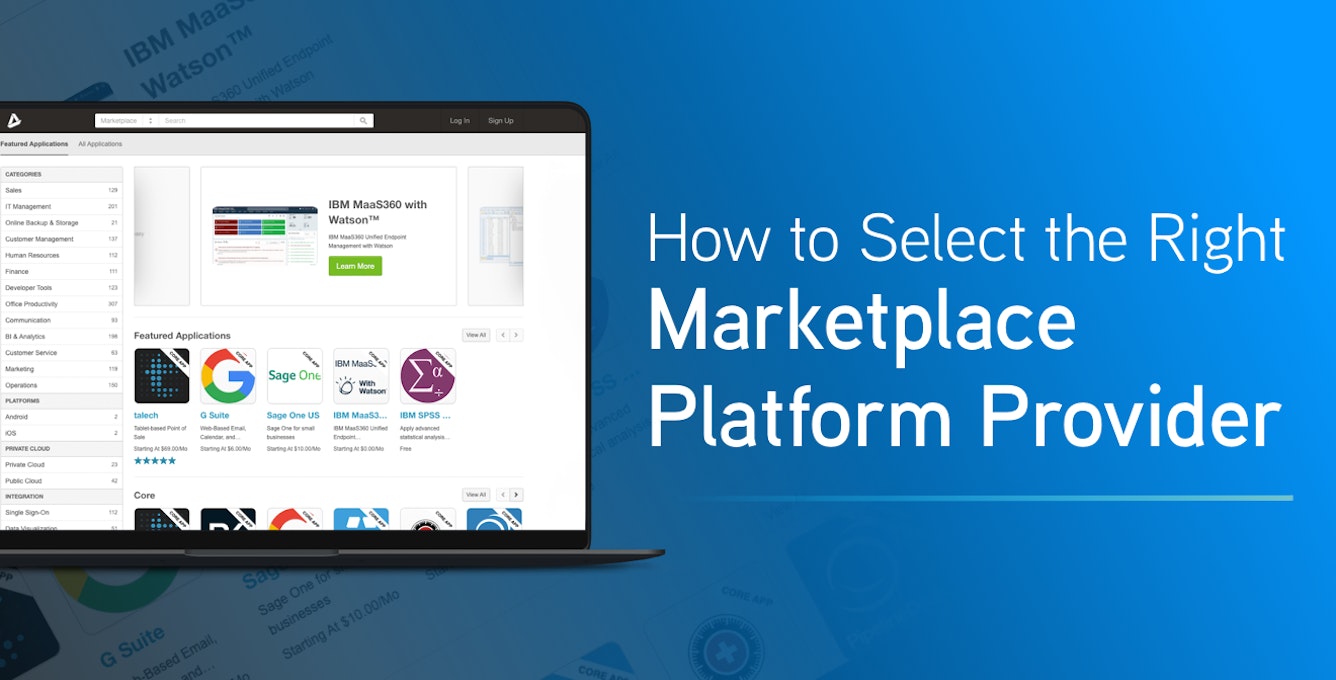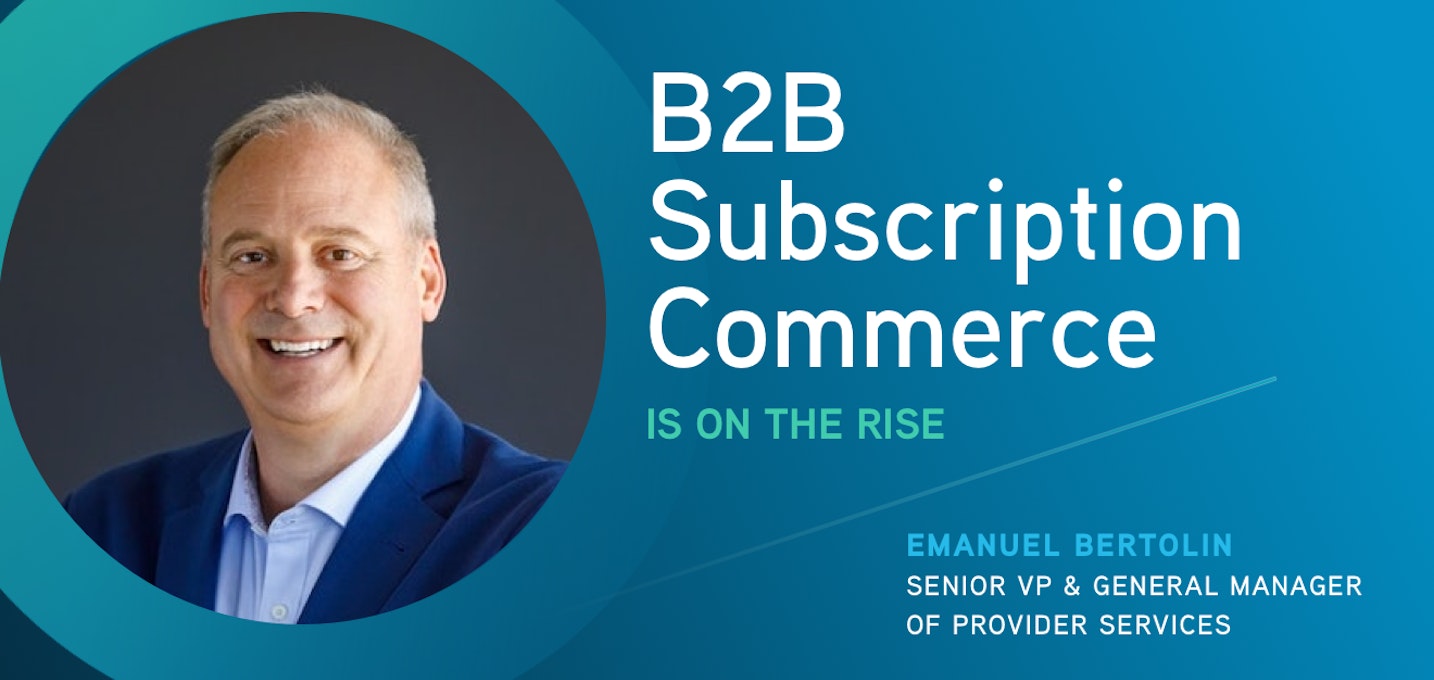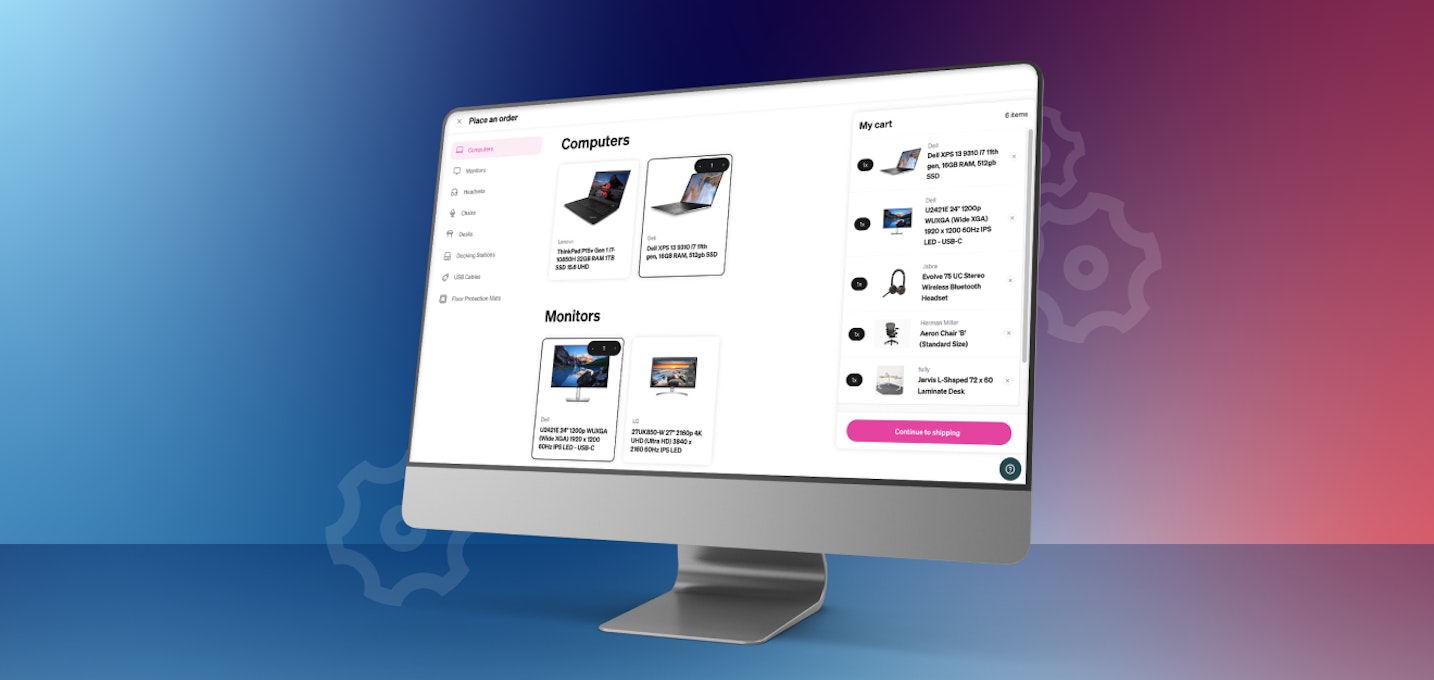Strategy & Best Practices
How to Select the Right Marketplace Platform Provider
By Ideas @ AppDirect / June 3, 2020

Few would argue that investing in digital commerce technology is a bad idea, especially now, when a superior digital experience can be a true differentiator. However, for companies looking to upgrade their commerce systems, legacy technology is a huge barrier. Even for companies that were “born in the cloud,” it is simply too expensive to rip out and start over.
That’s one reason why selecting the right digital commerce technology partners is more important than ever before. For digital marketplaces—an increasingly important channel for selling software and services—it is even more critical to choose the right marketplace platform provider.
Not all marketplace providers will offer every feature and functionality you require. Moreover, not all providers are flexible enough to respond to digital economy demands, which change often and quickly. As you begin or continue your search, here’s what to look for in a marketplace platform provider.
1. Ability to Integrate with Existing Systems Seamlessly
One of the most important factors to look for in a marketplace platform is the ease of integration with existing systems. API-powered solutions are a must; done correctly, APIs can offer an interface that allows data to flow seamlessly between old and the new systems. This type of API “integration layer” can not only be the least disruptive way to launch a marketplace, but also the most cost-effective way.
2. Billing that Is Purpose-built for Digital Marketplaces
Marketplace billing platforms must be able to handle many different scenarios, including time-bound trials, pay-per-use, and subscriptions, plus much more. You should be able to change your pricing quickly and easily, based on changing market conditions. You may not be ready to launch an ecosystem right away, but third-party monetization should also be an option in case you want to pursue it as a strategy in the future.
3. A Catalog of Leading Applications
Inventory is a critical component of any marketplace, however, stocking virtual shelves is harder than you might imagine. In order to accelerate time to market, your marketplace platform should have applications that are ready to sell out of the box, making it easy to get inventory up and out to market. To make this easier, applications should be fully integrated and have up-to-date contractual agreements.
4. A Clear Product Roadmap that Shows Value
In today’s ever-changing digital economy, your marketplace platform provider must offer continuous innovation. The provider’s roadmap should deliver value to both you and your customers. Ask any potential providers what capabilities they will offer in future releases, then determine whether these particular features support your vision for digital commerce.
5. Easy Onboarding for New Applications
While a marketplace provider should have a relevant catalog of applications, it should also be easy to add new applications, extensions, add-ons, and other digital products. A best-in-class developer center that allows developers, whether internal or third party, to test and deploy new versions, add documentation, and more is essential to marketplace success.
6. Tools that Give You Control
Your marketplace platform should give you as much control as possible. It should offer a powerful admin panel that allows you to see orders, income, vendors, marketplace design, and payouts. Even if you only plan to have a minimal number of products in the beginning, remember that marketplaces can grow quickly, so your platform should allow for significant growth.
For example, managing payouts can be one of the most difficult parts of an online marketplace. For this reason, you should make sure your platform allows you to handle commissions and payment distribution to sellers. This means your marketplace platform should have both automatic and manual payout functionality.
In the end, your marketplace platform must align with your business goals and challenges, your marketplace management, collaboration with and retention of vendors, customer acquisition and, ultimately, their satisfaction.
For more information, read our full guide, “Finding the Right Marketplace Platform Provider: 6 Questions to Ask.”
READ NOW
Ideas @ AppDirect is a leading source for trends, statistics, best practices, and other information related to the digital economy.
Related Articles

Strategy & Best Practices
Why Marketplace Redesigns Are a Must, and How to Do Them Effectively
Business buyers have long been accustomed to slick digital experiences in their personal lives and that exposure is shaping their expectations of what...By Shideh Rahmanian / AppMarket / May 18, 2020

Strategy & Best Practices
B2B Subscription Commerce Is on the Rise. Here's the One Thing You Need to Know.
Today, subscription commerce is so common that many of us take it for granted. We use a credit card, for example, to set up an automated, recurring ...By Ideas @ AppDirect / AppDirect / April 14, 2020

Strategy & Best Practices
Conquer Inefficient and Costly Hardware Management
Company hardware is often poorly tracked and plagued by manual processes, leading to 30% of hardware assets being lost, missing, or unaccounted for. Firstbase solves these problems with a platform that automates device management from procurement and onboarding, to offboarding and retrieval.By Denise Sarazin / AppDirect / April 7, 2025